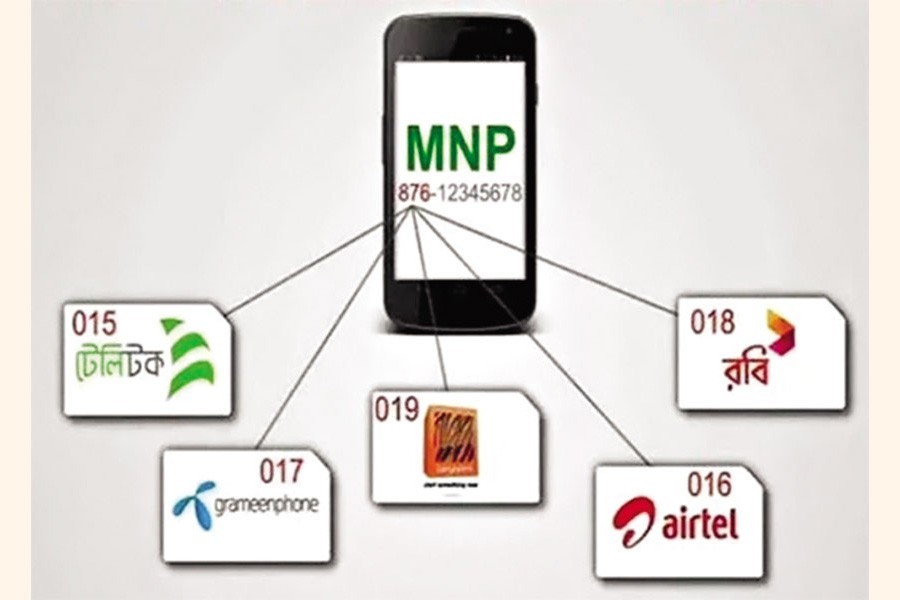The country's telecom regulator has changed the licensing guidelines for mobile number portability (MNP) services, reducing the provision of revenue sharing with the government from 15 per cent to 5.5 per cent.
The Bangladesh Telecommunication Regulatory Commission (BTRC) recently issued a notice regarding the provisions of fees, charges and gross revenue of the MNP operator.
According to the amended guidelines, the only MNP operator - Infozillion - would have to share 5.5 per cent of its gross revenue from the second year, instead of the previous provision of 15 per cent.
The guidelines also said no revenue would be shared by the licencee for the first year.
However, the licencee, from the second year, would share 5.5 per cent of its annual audited gross revenue with the commission, and it would be paid on quarterly basis within the first ten calendar days at the end of each quarter.
The total variable component would be reconciled on an annual basis based on the licencee's audited accounts for that year. If there is any underpayment, the balance must be paid within 90 calendar days of the financial year-end of the licencee.
In the event of any overpayment by the company, it might set off the excess amount against quarterly payments in the next year with prior permission from the commission.
Chief Executive Officer of Infozillion Teletech BD Limited Lt Col (retd) Mohammad Zulfikar said they have long been demanding reduction of the percentage of gross revenue sharing to the government.
MNP is not a big success in the country for many reasons, including stability among the operators.
He noted that changing operator is not a priority option now for the subscribers.
"The revenue is reducing also due to the Covid-19 impact on the industry."
He added that 5.5 per cent revenue sharing for MNP is rational, as the country's mobile operators, which are much bigger in terms of revenue, share revenue at the same ratio.
MNP service, which began in 2018, allows subscribers to swap networks within 72 hours without changing their existing 11-digit number.
Given the overall level of discontentment among mobile users about their networks, it was expected that the service would take off in a big way.
However, about two years on, the demand for the service, which costs Tk 57 for a subscriber, has fizzled out. Of the 172 million odd mobile subscribers as of June 2021, only some 1.2 million have availed the service since its rollout.
Earlier, discussions on MNP started in 2009. In June 2013, the BTRC asked the mobile operators to introduce the service by January 2014.
But the operators failed to do so, which compelled the telecom regulator to go for a third-party company to implement the service.
The telecom regulator had narrowed in on Infozillion by an auction in 2017. The licence acquisition fee was set at Tk 100 million, and the winning company would have to share 15 per cent of its revenue with the government from the second year onwards.


